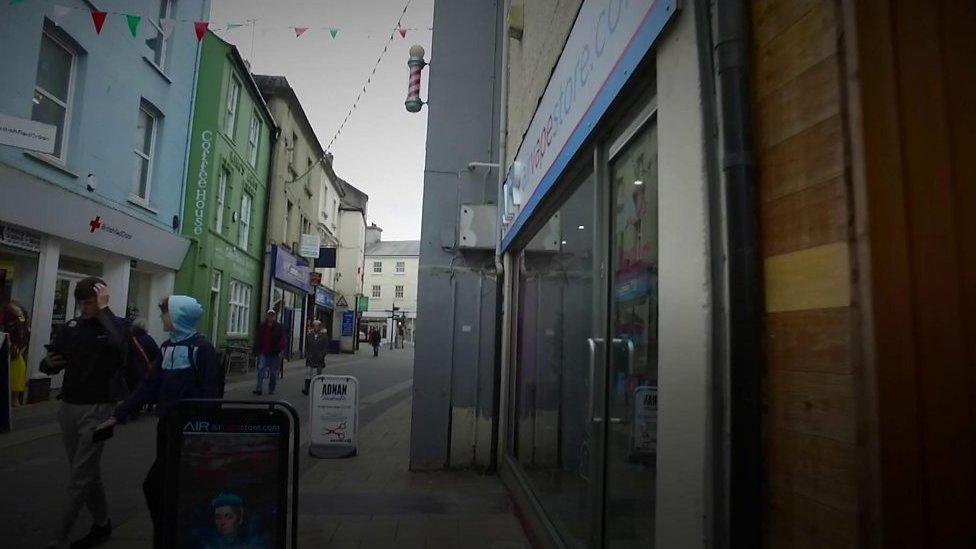Campaigners want more help for Wales' high streets
- Published
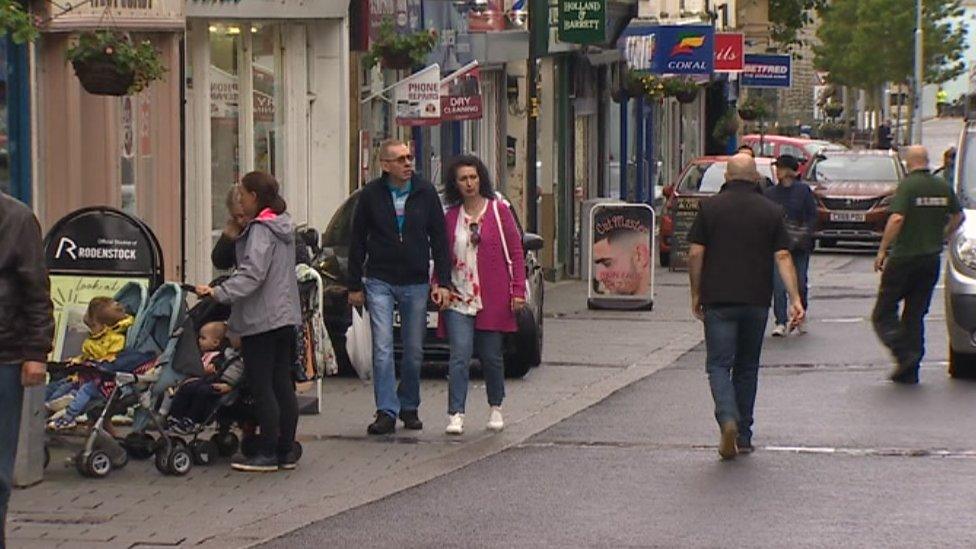
Some high street in Wales are feeling the pinch - such as Pool Street in Caernarfon
Campaigners say the Welsh Government could do much more to relieve the pressure on Welsh high streets.
The UK Government has announced it will be increasing its high street support fund to £1bn.
Retailers have said the Welsh Government needs to make shops a priority in its next budget.
The Welsh Government has insisted that supporting town centres remains "the cornerstone of our regeneration activities".
Welsh ministers have also argued that spending by the UK Government "does not make up for nearly a decade of cuts".
The latest retail figures for Wales suggest the decline in the Welsh high street is worse than anywhere else in the UK.
Head of the Welsh Retail Consortium Sara Jones said increasing business rates were a "real cost burden facing retailers at the moment".
"High streets are facing challenges across the UK but there are additional challenges in Wales," she told BBC Wales' Sunday Politics programme.
"Business rates are at a 20-year high and higher in Wales than in England and Scotland."

High street tales: One town - two streets
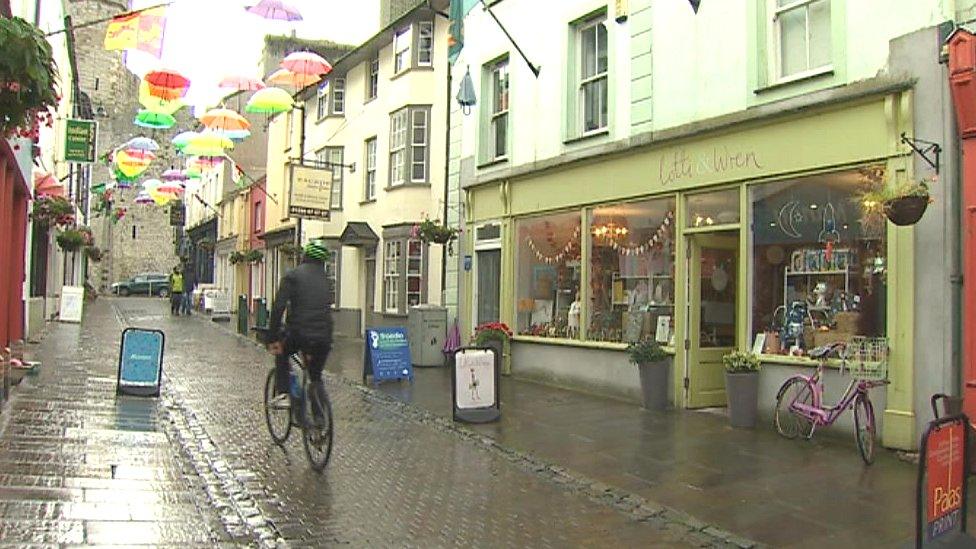
Palace Street in Caernarfon has been nominated as a "rising star" of UK high streets
Palace Street in Caernarfon is bucking the trend.
It is packed with successful independent shops - booksellers, clothing, artisan jewellery, cafes, restaurants and a deli.
It has even been nominated as a "rising star" in the Great British High Street Awards this year.
Jennifer Hanlon owns Lotti and Wren, selling bespoke goods, from shoes to children's clothing.
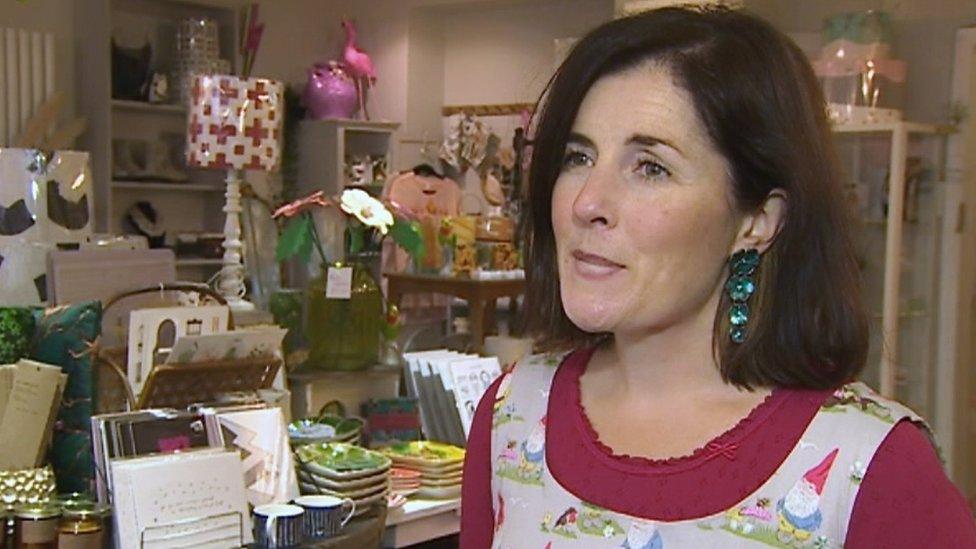
"It's not a competition here", insists Lottie and Wren's owner Jennifer Hanlon
The business has been growing since it opened on this street 17 years ago, and does not sell online.
"Websites are quite cold, I like to touch and feel something. What this street in Caernarfon has proven is that if you can offer that personal service people will come back," she said.
She believes the secret of Palace Street's success is its business owners - who are mostly women - work together to stage events and support each other.
"It's not a competition here. People aren't coming into town for one shop, so we work together and it just so happens that it's mostly women who have done that."
Different street - different story
But a five-minute walk across Caernarfon's imposing Castle Square - the Maes - to Pool Street - and things are very different.
It is home to more established national brand and high street chains.
While shops on Palace Street attract little or no business rates - Pool Street has a much higher rateable value.
It means Endaf Cook, the owner of the J&C Chippy on Pool Street, must pay at least a third more than other eateries in the town - because he's located on the high street.

The owner of this chip shop says he must pay higher rates than in other parts of the town
He said it was no wonder firms on the street had struggled to survive.
"Small businesses are trying to keep their heads above water but finding the rateable value too excessive and are closing down," said Mr Cook.
"The shop opposite me here is a prime example. They were offering to give the shop away for free just to get it off their hands - it's a crying shame."
Gareth Thomas, who is responsible for economic development on Gwynedd council's cabinet, said his hands were tied.
"We can't regenerate high streets with grants and give discounts on the rates - that has to come for the Welsh Government," he argued.

According to the Welsh Retail Consortium the current system is "broken".
It wants some funds currently given to local councils to revive high streets being used to reduce business rates instead.
Bangor's High Street - the longest in Wales - but struggling with closures
In a statement, Finance Minister Rebecca Evans said the Welsh Government recognised "the importance of a healthy retail sector in Wales" and has provided an extra £2.4m to local authorities to provide discretionary rate relief.
She said that was in addition to the small business rates relief scheme, which the minister said had provided more than £100m of support each year.
"However, non-domestic rates are not a cure-all for the challenges facing town centres, which reflect much more fundamental changes in the retail sector and in our shopping and leisure habits," she added.
Sunday Politics Wales is on BBC Two Wales from 10:00 BST on Sunday, 6 October - or catch-up on the BBC iPlayer
- Published12 September 2019
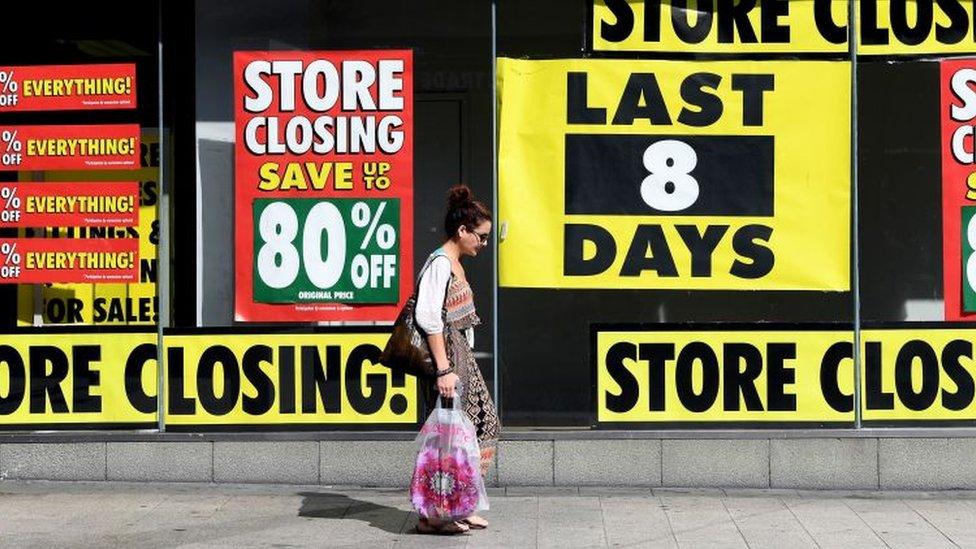
- Published11 September 2019
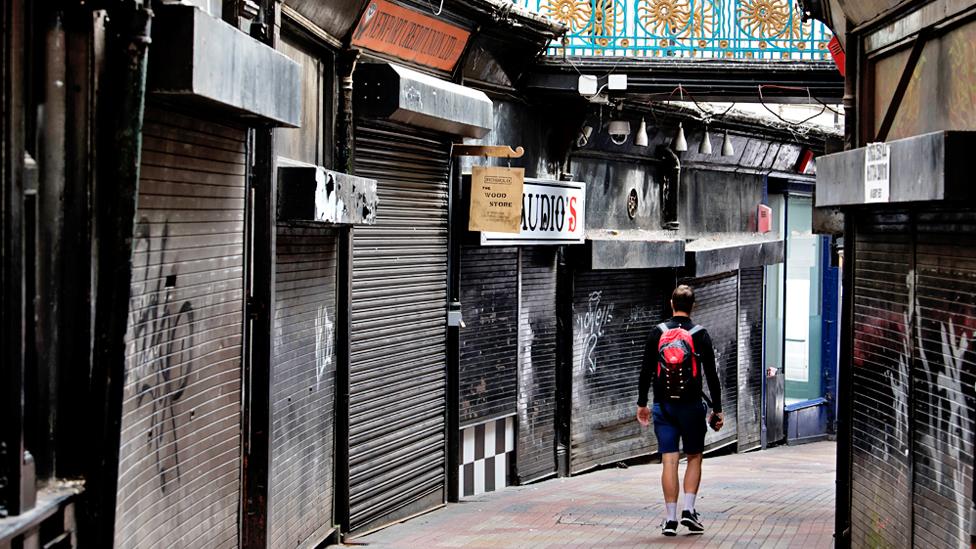
- Published28 September 2019
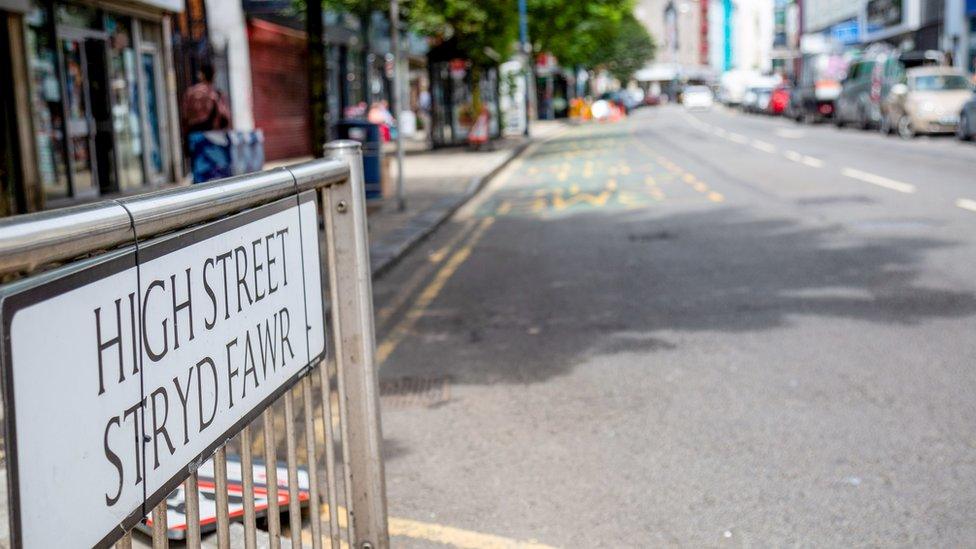
- Published26 March 2019
